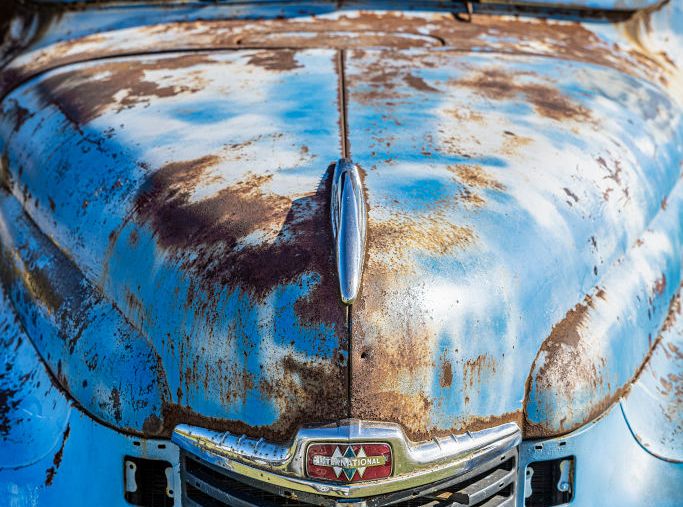
What You Need to Know About Truck and SUV Rust Protection
Whether you’re considering buying a classic truck or prepping your SUV for winter, rust is always a concern. Although it’s commonly thought of as an ‘old vehicle’ problem, rust issues still plague modern trucks and SUVs. Even well-reviewed ones like the Ram 1500 and Toyota Tacoma. But with the correct care and prep-work, rust isn’t something to be feared. There’s a lot the average consumer to do to make sure their truck or SUV has proper rust protection.
What causes rust
Ignore the myths: washing your car doesn’t make it rust. Or rather, it’s not the specific act of washing that causes rust.
Rust is the result of steel on your truck or SUV reacting with oxygen in a wet environment. Fun chemistry fact: if your vehicle was completely surrounded by 100% pure water, it actually wouldn’t rust. It’s oxygen in the water and air, along with things like dirt, grime, and road salt, that actually causes rust. That’s why washing your vehicle doesn’t cause rust directly—it’s improperly washing it that’s the problem.
Even storing your truck or SUV in the garage won’t matter if it’s still wet. Water can collect behind wheel wells, on the underbody, and get in contact with air. And this kind of standing water causes rust.
What automakers offer for rust protection
In the early years of the automobile, rust was obviously a concern, but little could be done. However, ever since Kurt Ziebart (founder of the eponymous company) invented the rustproofing process, the technology has constantly improved. As an automotive paint engineer, I worked with several people heavily involved in rust (‘corrosion’) protection. The modern process is called electrocoating, and automakers contract with several different suppliers, such as BASF, to set it up.
Essentially, the truck or SUV’s bare metal body is electrified. It’s then lowered into a bath containing a mix of different rust protectors and inhibitors. Exact formulas are company secrets, but metallic phosphate compounds are common ingredients. Zinc is especially effective, which is why it’s also used to galvanize steel, although manganese and iron phosphates are also used. The electric current attracts the compounds and makes sure every inch of the vehicle’s body is evenly coated.
Once the e-coat (as it’s called in the industry) is applied, the next layer of rust protection is applied: paint. Yes, paint. It doesn’t just make trucks and SUVs look pretty: paint, like the e-coat, is a physical and chemical barrier. As is the clear coat which goes on top of the paint.
That’s why it’s so important to repair and touch-up scratches and gouges. A scratch is a break in the barrier protecting the steel of your truck or SUV from the elements. Left alone, a scratch often starts to rust.
How to improve your truck or SUV’s rust protection
First, wash and dry your truck or SUV regularly and properly. Don’t just wash the body panels and windows—get at the underbody and wheel wells, where rocks and salt collect. Certain vehicles, such as the Tesla Model 3 according to one Autoweek report, may collect more grime than others. Using wax also helps renew the clear coat and paint, according to Haynes. After washing, make sure to carefully and completely dry your vehicle. Check panels and drain plugs for standing water. And if you have a convertible, check your rain rail drains, too.
For classic trucks and SUVs, especially if they’re winter-driven, investing in additional underbody rust protection is definitely a good idea. Brand-new trucks and SUVs are fine, but if you live in an area that’s especially wet, humid, or snowy, consult with your mechanic or local auto-body shop.
Hagerty suggests using oil-based sprays such as Carwell (known as Krown in Canada). Road & Track reports excellent results with ceramic undercoating. Ziebart’s company is still going strong and offers its own undercoating formula. The good news is, if you spot rust early enough, it can be removed. Even if there is rust, rustproofing will still be effective at slowing its progression.
Rust protection is all about prevention and careful vigilance. Keep that in mind, and your truck and SUV should be clean for a while.


